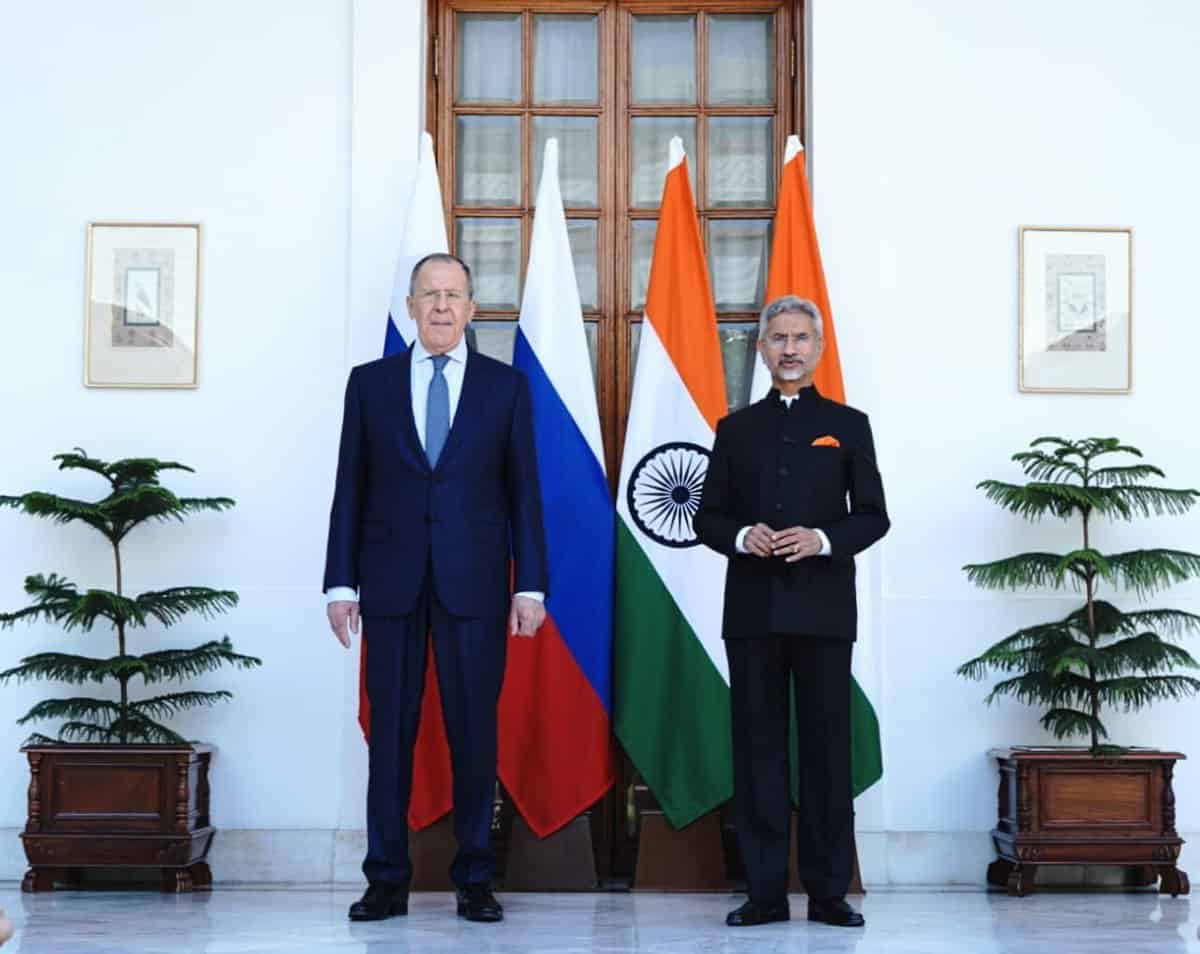
New Delhi: External Affairs Minister S Jaishankar on Friday held talks with his Russian counterpart Sergey Lavrov, a day after the US warned of consequences over attempts to “circumvent” American sanctions against Moscow.
The high-level talks took place in the backdrop of indications that India could buy greater volumes of discounted Russian oil and both sides were keen on having a ruble-rupee arrangement for bilateral trade.
In his opening remarks at the talks, Jaishankar, referring to the Russia-Ukraine conflict, said India is in favour of resolving differences and disputes through dialogue and diplomacy.
“We have diversified our cooperation by expanding our agenda. Our meeting today takes place in a difficult international environment apart from the pandemic,” Jaishankar said.
“India, as you are aware, has always been in favour of resolving differences and disputes through dialogue and diplomacy. In our meeting today, we will have an opportunity to discuss contemporary issues and concerns in some detail,” he said.
On his part, Lavrov said the ties between India and Russia were “very sustainable” during many “difficult times” in the past and that he did not have the slightest of doubts about continued cooperation.
He said strengthening of ties with India has been a key priority of the Russian foreign policy.
“We are interested in having a balanced world order which makes it sustainable,” he said.
“These days our western colleagues would like to reduce any meaningful international issue to the crisis in Ukraine…We do not fight anything and we appreciated that India is taking this situation in the entirety of effect and not just one-sided way,” he added
Lavrov arrived in New Delhi on Thursday evening after concluding a two-day visit to China.
The Russian foreign minister is scheduled to call on Prime Minister Narendra Modi after his talks with Jaishankar.
Hours before the Russian foreign minister landed in India, US Deputy National Security Adviser Daleep Singh cautioned that there will be consequences for countries actively attempting to “circumvent or backfill” American sanctions against Moscow.
After holding a series of meetings with Indian interlocutors, he also said that Washington would not like to see a “rapid” acceleration in India’s import of energy and other commodities from Russia.
The proposed rupee-rouble payment system, if finalised, is likely to help the two long-standing strategic partners carry on with bilateral trade while avoiding the purview of Western sanctions on Russia.
People familiar with Lavrov’s visit said earlier that the Indian side is likely to press for timely delivery of various military hardware as well as components of the S-400 missile systems by Russia.
Unlike many other leading powers, India has not yet criticised Russia for its invasion of Ukraine and it abstained from the votes at the UN platforms in condemning the Russian aggression.
However, last Thursday, India abstained on a resolution pushed by Russia on the humanitarian crisis in Ukraine, which was seen as reflective of its neutral position on the conflict.
India has been pressing for the resolution of the crisis through diplomacy and dialogue.
Prime Minister Narendra Modi has held phone conversations with Russian President Vladimir Putin on February 24, March 2 and March 7.
Modi had spoken to Ukrainian President Volodymyr Zelenskyy twice.
Last week, Jaishankar said in Parliament that India’s position on the Ukraine conflict has been “steadfast and consistent” and that it has been seeking immediate cessation of violence.
